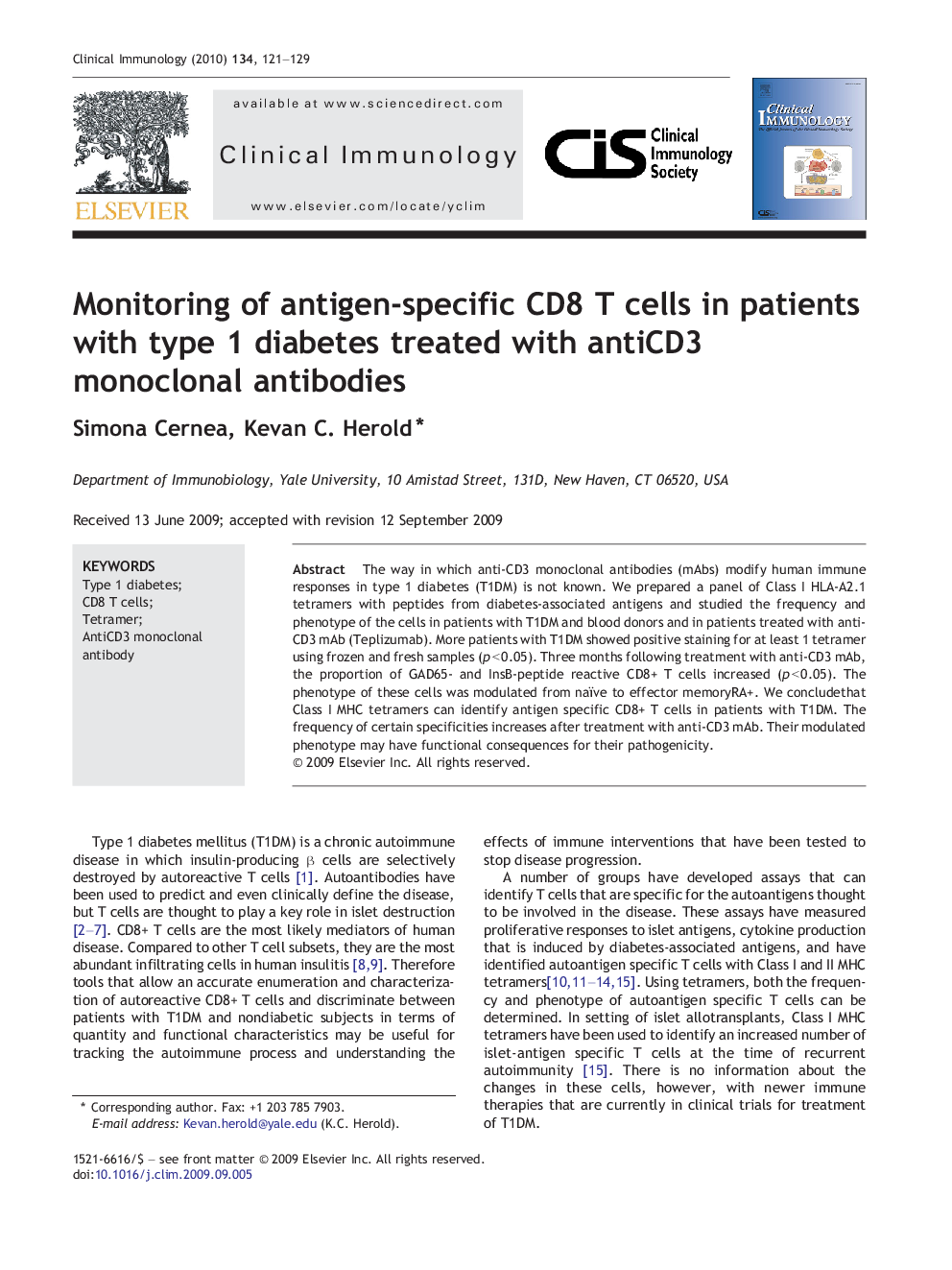| Article ID | Journal | Published Year | Pages | File Type |
|---|---|---|---|---|
| 3257814 | Clinical Immunology | 2010 | 9 Pages |
The way in which anti-CD3 monoclonal antibodies (mAbs) modify human immune responses in type 1 diabetes (T1DM) is not known. We prepared a panel of Class I HLA-A2.1 tetramers with peptides from diabetes-associated antigens and studied the frequency and phenotype of the cells in patients with T1DM and blood donors and in patients treated with anti-CD3 mAb (Teplizumab). More patients with T1DM showed positive staining for at least 1 tetramer using frozen and fresh samples (p < 0.05). Three months following treatment with anti-CD3 mAb, the proportion of GAD65- and InsB-peptide reactive CD8+ T cells increased (p < 0.05). The phenotype of these cells was modulated from naïve to effector memoryRA+. We concludethat Class I MHC tetramers can identify antigen specific CD8+ T cells in patients with T1DM. The frequency of certain specificities increases after treatment with anti-CD3 mAb. Their modulated phenotype may have functional consequences for their pathogenicity.
